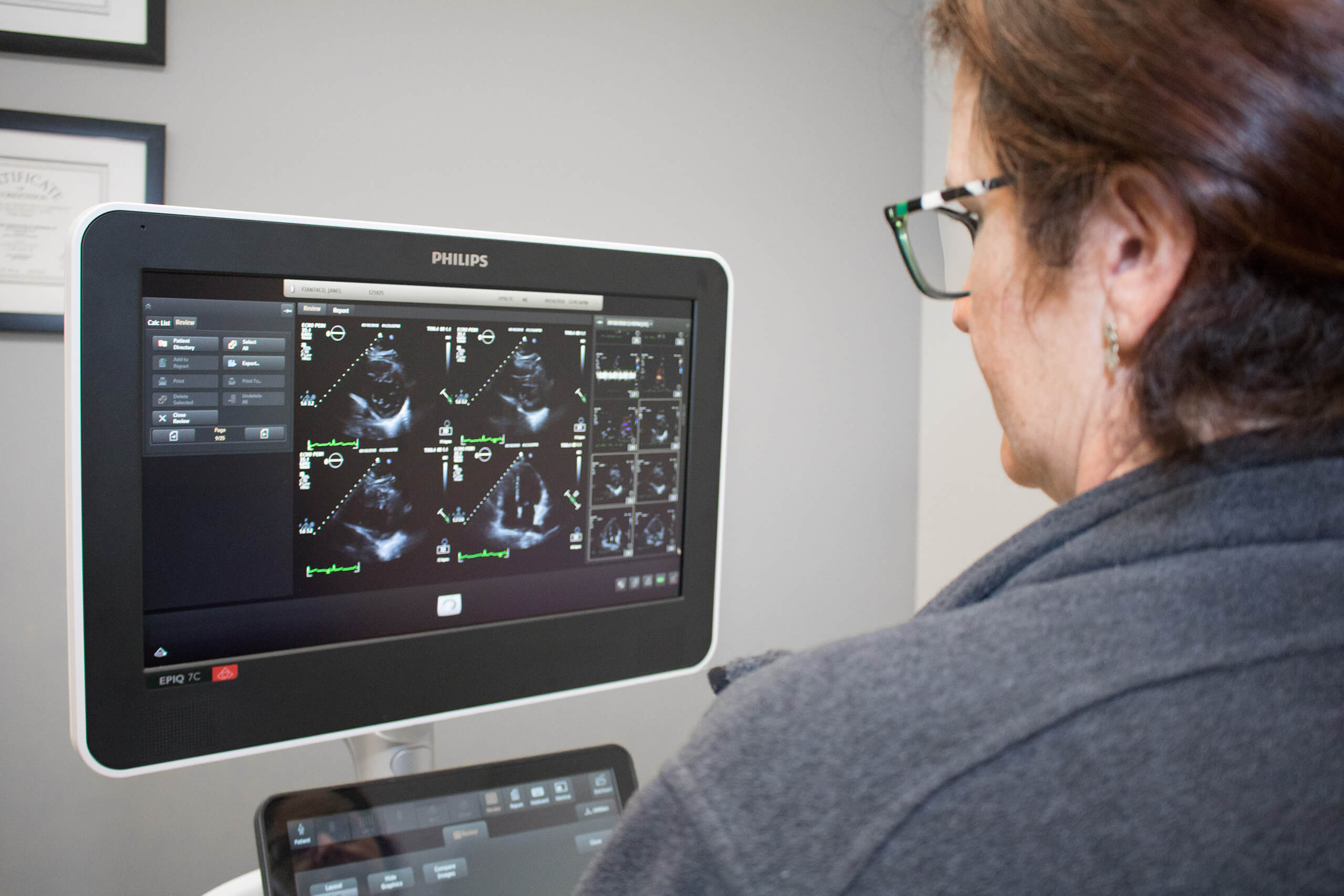
Nuclear Testing
A variety of diagnostic tests can be performed to determine if your body has a healthy, ideal reaction. Nuclear testing including an exercise stress test, Lexiscan stress test, MUGA scan, and thallium viability study are among the diagnostic services that may be performed. While some tests measure your heart rate during physical activity, others can be completed while you are at rest.
Learn more about specific heart conditions and treatments below.
WHAT YOU NEED TO KNOW
Thallium scans or myocardial perfusion scans are tests that involve an IV injection and a special camera.
- Resting SPECT thallium scan or myocardial perfusion scan: This nuclear scan is done while you rest. The purpose is to view areas of the heart muscle that are not getting enough blood.
- Exercise thallium scan or myocardial perfusion scan: This nuclear scan is done while you are exercising. The purpose is to view areas of the heart muscle that are not getting enough blood during activity.
This test involves an adenosine, Lexiscan or persantine thallium scan, or myocardial perfusion scan. The nuclear scan is done if you are unable to exercise, and it reveals areas of the heart muscle that are not getting enough blood. It uses special medicines that stress the heart in the same way exercise does.
These tests involve an IV injection and a special camera. It is known as a resting SPECT thallium scan or myocardial perfusion scan, which is done while you rest in order to view areas of the heart muscle that are not getting enough blood.
This form of nuclear testing involves MUGA scans/radionuclide angiography (RNA) scans. Similar to the PET scan, these tests involve an IV injection and a special camera:
- Resting gated blood pool scan (RGBPS), resting MUGA, or resting radionuclide angiography: Completed while you rest, a nuclear scan evaluates how well the heart wall moves and how much blood is pumped with each heartbeat.
- Exercise gated blood pool scan, exercise MUGA, or exercise radionuclide angiography: A nuclear scan is used to evaluate how well the heart wall moves and how much blood is pumped with each heartbeat. It is done just after you have walked on a treadmill or ridden on a stationary bike.
A Myocardial Viability Scan will help your doctor determine how much healthy heart muscle tissue you have generally in consideration of heart surgery.



